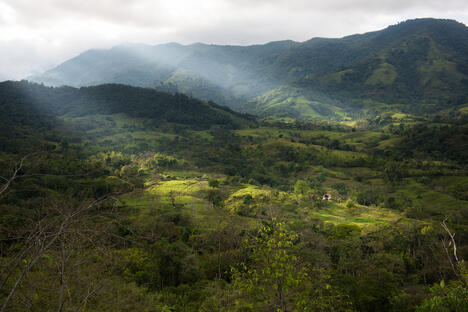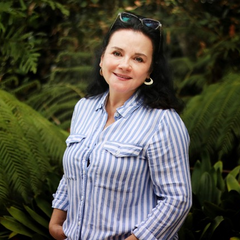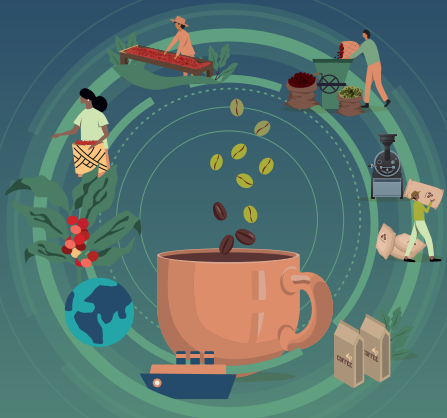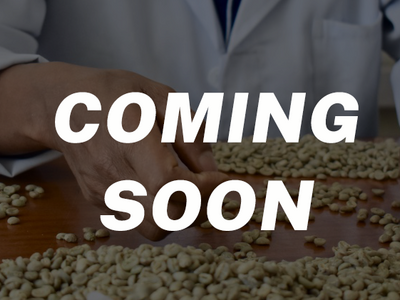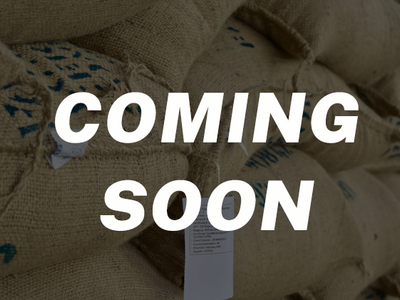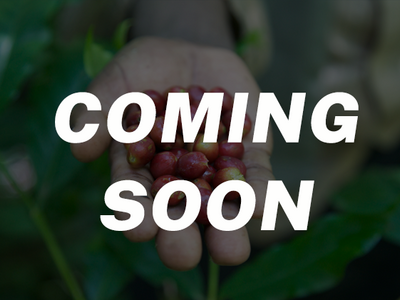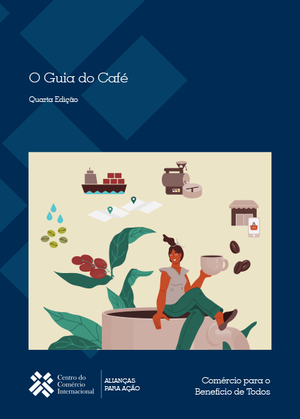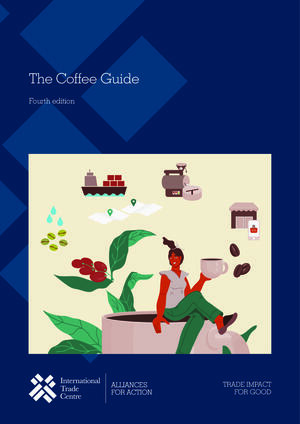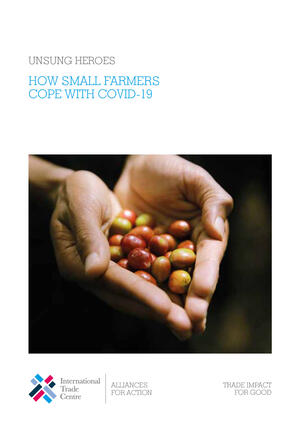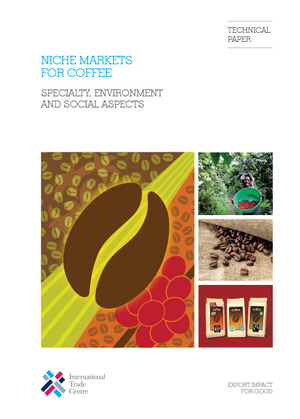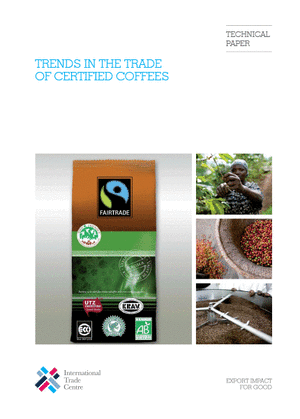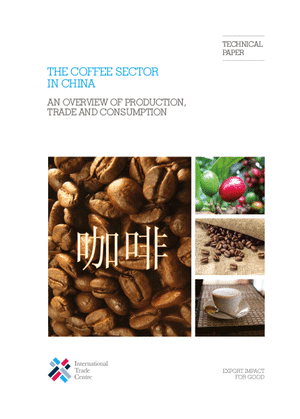
Sustainable is the New Normal
Explore this collection of resources and tools supporting a more sustainable coffee sector
The livelihoods of many people depend on the coffee industry – as does the ever-increasing demand for one of the world’s most popular beverages. Yet a web of challenging environmental, social and economic factors is putting the coffee sector and the livelihoods of many contributing to it at risk.
Find out more about the issues threatening the coffee supply chain, the sustainability framework in place today and sustainable pathways for tomorrow in Chapter 2 of The Coffee Guide, 4th Edition.
Q&A with an Expert
A quick chat with Blanca Castro, Executive Director of the nonprofit International Women’s Coffee Alliance (IWCA)
Climate change advances, business as usual is not sustainable
With the rapid advance of climate change, maintaining or even increasing production to meet growing demand is becoming difficult. Low incomes, volatile prices and the lack of an enabling operational framework continue to challenge the livelihoods of farmers. To keep going in the long term, the industry must re-examine business as usual.
Climate change refers to long-term shifts in temperatures and weather patterns. Climate change implies rising temperatures, more severe and frequent extreme events such as drought, floods, hurricanes and storms, greater pest and disease incidence, and soil degradation. Arable land for coffee may decrease as a consequence, and keeping up productivity sustainably is becoming increasingly difficult.

Conversely, global coffee production has more than doubled since 1960 and has shot up in the last 20 years especially. To keep up productivity sustainably, climate change adaptation on the farm and mitigation from seed to cup will be crucial.
Some of the anticipated impacts of climate change on coffee production include:
- Yields at risk
- Declining quality of coffee beans because of warmer temperatures and erratic rains
- Soil degradation because of deforestation, full-sunlight cultivation systems and loss of biodiversity
- A likely increase of pests and diseases because of higher temperatures, erratic rainfall and biodiversity loss
Sustainable production and consumption systems protect the environment, mainstream sustainable practices across the sector and engage all actors. Measures include:
- An industry-wide approach:
- Actions at production level to enhance farm performance sustainably
- Actions at market level including price and premium management, sustainable trading practices, and investment strategies by value chain actors to cover the costs of sustainable production
- Actions at sector governance level, governments and governing bodies at the national, regional and international level
- A circular economy: Circularity rethinks the connection between people and planet, resources and products, and value and capital. In coffee, a circular economy system seeks to conserve and regenerate natural resources and ecosystems, promote the well-being of coffee-producing communities, and offer economic opportunities for all stakeholders to increase their competitiveness. The circular economy can help us to achieve global ambitions to reduce pollution, emissions and waste – as well as increase jobs and prosperity, especially for small and medium enterprises at origin. To get there, trade and production in inclusive and sustainable international value chains play a central role. We invite you to join ITC in The Center for Circular Economy in Coffee, a global, precompetitive platform for enhancing and nurturing circular economy principles in practice in the coffee sector.
- Alliances for sustainable growth that leverage public-private partnerships and collaboration from farm to fork for a greener coffee sector.
Coffee farmers’ livelihoods
The volatility of the world’s coffee prices, the effects of climate change and global inflation have heightened pressure on coffee producers and thrown a huge number of them below the global extreme poverty line of $1.90 a day. The outbreak of COVID-19 adds a new layer of complexity and challenges, as demand and supply dynamics are shaken around the globe and across sectors.
A decent standard of living for smallholder coffee farmers is the foundation of sustainable global coffee supply chains, prosperous rural communities and the natural environment. At a minimum, economic sustainability requires coffee production to be economically viable in the long term. This demands a strategy that takes into consideration the social and environmental aspects of production.
Achieving a living and prosperous income for coffee producers worldwide, diversifying and increasing growth opportunities through value addition at origin and women and youth empowerment, creating incentives for present and future generations of coffee growers, and sharing value more equitably across the coffee supply chain are all pieces of the puzzle for a sustainable coffee sector.
The sustainability framework today
Today, a designated set of standards leads efforts for a more sustainable coffee sector. These cannot fully address the complex challenges the sector faces, however, and a true sustainable transformation of the coffee supply chain has yet to be achieved.
Voluntary Standards and Certifications
Below is a non-exhaustive list of some of the main sustainability standards and certifications in the coffee sector today. Beyond their social and environmental objectives, they also seek to achieve a price premium that will reward coffee producers for their sustainability efforts, and offer coffee roasters a competitive asset in the form of a marketable seal of sustainability for consumers that will justify that premium.
While they have paved the way for the growing sustainability framework we see today and have achieved positive impact to date, they remain an imperfect system and are not a stand-alone solution to the industry’s sustainability issues.
| Biodynamic | Fairtrade International | Organic certification | The Common Code for the Coffee Community (4C) |
| B-Corps | Smithsonian Bird-friendly | Rainforest Alliance | The Certifica Minas Coffee programme |
ITC’s Standards Map tool offers comprehensive, verified and transparent information on standards, codes of conduct and audit protocols addressing environmental protection, human rights, social and labour rights, economic development, quality and food safety, as well as business ethics. Producers, cooperatives, exporters and importers use the Standards Map to identify the most relevant standards applicable to their industry, compare information through tables and charts, and run self-assessments of their performance against the requirements of standards.
Shift from voluntary standards to mandatory sustainability frameworks
The framework for mandatory human rights and environmental due diligence
For a long time, sustainability efforts in the coffee sector happened in the framework of voluntary sustainability standards, which can help address socio-environmental concerns. To date, voluntary guidelines have provided companies with various frameworks that help facilitate their human rights and environmental due diligence. While these have been helpful in raising the profile of certain socio-environmental concerns within some business sectors, in 2022 only 16% of companies worldwide considered taking action to address human rights and environmental impacts within their value chain.
The switch to a duty of care with legal consequences is a reality that is now going global. The trend appears to be accelerating and will drastically impact value chains. The European Union, through its Green Deal Policy initiatives on Global Supply Chain Sustainability is leading the shift towards the mandatory framework for human rights and environmental due diligence, but similar steps are under consideration in several importing regions. In January 2023, the Corporate Sustainability Reporting Directive (CSRD) entered into force. This directive aims to modernise and strengthen the rules concerning the social and environmental information that companies have to report. A broader set of large companies, as well as listed SMEs, will now be required to report on sustainability. In June 2023, the EU Regulation on deforestation-free products also entered into force Under this Regulation, under which any operator or trader who places these commodities on the EU market, or exports from it, must be able to prove that the products do not originate from recently deforested land or have contributed to forest degradation. As of December 2023, the EU Council and the European Parliament reached a provisional deal on the EU Corporate Sustainability Due Diligence Directive (EU CS3D). In September 2022 the EU Forced Labour Regulation was also proposed and remains under review.
These examples of policy initiatives on global supply chain sustainability under the EU Green Deal clearly demonstrate that the ball is undeniably rolling, and that the shift towards mandatory approaches is underway. However, legislative frameworks are an iterative process that can leave room for constructive criticism, dialogue, action, and improvement. This will require collective collaborative and pre-competitive efforts across the sector.
Sustainability initiatives beyond certification
Beyond certification, new sustainability initiatives have also been emerging. Supply chain actors have rallied to find their own solutions through self-promoted, self-implemented sustainability programmes, as well as multi stakeholder initiatives. Producers and buyers are also finding other ways to achieve concrete impact. Having more control over variables is part of the attraction. These might range from coffee quality to social issues and environmental concerns at origin.
Below is a non-exhaustive list of selected sustainability initiatives in the coffee sector today. From producer empowerment, to environmental protection, to climate action, to gender equity and women empowerment, they focus on diverse facets of sustainability and complement each other overall. A more detailed mapping of sustainability initiatives and projects worldwide is available through the Coffee Sustainability Mapping Tool.
- The Global Coffee Platform
- Sustainable Coffee Challenge
- World Coffee Research
- The Initiative for Coffee and Climate
- The Sustainable Agriculture Food and Environment Platform
- The World Coffee Producers Platform
- The Center for Circular Economy in Coffee
- The International Women’s Coffee Alliance
- Cafe Femenino
- The Partnership for Gender Equity
- Fairtrade International
- The Latin American and Caribbean Network of Fair Trade Small Producers and Workers (CLAC)
- Fairtrade Africa
- Fairtrade Network of Asia and Pacific Producers
- Rainforest Alliance
ITC’s Alliances for Action is one example of an international development initiative that focuses on a comprehensive methodology of support from seed to cup, at every step of the value chain. It combines development goals and methodology with a market-based approach.
The forthcoming Coffee Sustainability Initiatives Map, a collaborative effort between International Coffee Organization via the Coffee Public Private Task Force and International Trade Center with co-funding from the European Union, is an interactive mapping tool that provides more visibility on sustainability and support initiatives in coffee producing countries around the world. Governments, funders, nonprofits, and corporate actors can use this tool to discover what is being done, where, and by whom, in order to identify gaps, synergies, and opportunities for collaboration.
Coffee Sustainability Initiatives Map
Certification guarantees (through a certificate) that specific rules and regulations of voluntary standards are met in a particular environment (e.g. individual producer, producer group, cooperative or even region). These producers must meet certain requirements - social, economic and/or environmental.
Certification calls for independent third-party confirmation of this status, conducted by an accredited auditor. Typically, certifications must be renewed annually are designed to protect both buyers and suppliers. Roasters buying certified coffee benefit from the guarantee provided by the certificate and by using the sustainable branding on their retail packaging. This contributes to better marketing opportunities because of a specific market demand for certified goods.
A Circular Economy A Circular Economy model for the coffee sector designs, balances, and implements regenerative practices, resource efficiency, and waste reduction, while creating value from process outputs to achieve environmental, social and economic sustainability. Driven by a systemic and holistic approach, it draws inspiration from the dynamics of natural systems to regenerate, maintain, and create shared value for all stakeholders, across different contexts and within the entire coffee value circle.
Climate change adaptation is ‘the process of adjustment to actual or expected climate and its effects. In human systems, adaptation seeks to moderate or avoid harm or exploit beneficial opportunities.
In some natural systems, human intervention may facilitate adjustment to expected climate and its effects’. This adjustment includes many areas such as infrastructure, agriculture and education. In the coffee sector, climate change adaptation typically consists of technical solutions to adapt coffee production and processing to climate changes. Long-term strategies are needed to improve conditions to adapt to future climate risks and build capacities as required, including the development of financing mechanisms.
Intergovernmental Panel on Climate Change (2014) and ITC (2012).
Climate change mitigation is a ‘human intervention to reduce the sources or enhance the sinks of greenhouse gases’. Human interventions reduce the sources of other substances that may directly or indirectly limit climate change. These include reducing particulate matter emissions that can directly alter the radiation balance (e.g. black carbon) or measures that control emissions of carbon monoxide, nitrogen oxides, volatile organic compounds and other pollutants that can change the concentration of tropospheric ozone, which has an indirect effect on the climate.
In the coffee sector, climate change mitigation often refers to measures to reduce greenhouse gases to help protect the climate and generate carbon credits. It targets all value chain actors, from producer to consumer.
Intergovernmental Panel on Climate Change (2014) and ITC (2012).
‘Living Income is the net annual income required for a household in a particular place to afford a decent standard of living for all members of that household.’
Living Income Community of Practice, 2019.
Organic agriculture is a production system that sustains the health of soils, ecosystems and people. It combines tradition, innovation and science to benefit the shared environment and promote fair relationships and a good quality of life for all involved.
IFOAM - Organics International.
Sustainability is a holistic approach that considers ecological, social and economic dimensions, recognizing that all must be considered together to find lasting prosperity.
Sustainability consists of “meeting the needs of the present without compromising the ability of future generations to meet their own needs.” This is not a new concept. The definition builds upon the 1987 definition of "Sustainable development” proposed in Our Common Future, also known as the Brundtland Report, that was published by the World Commission on Environment and Development.
The coffee paradox is the stark divide between decreasing and unstable prices for farmers and increasing prices for consumers.
Daviron and Ponte, 2005
Verification enforces certain agreed criteria and practices, but does not use a certificate to market the claim to the final consumer. Instead, company standards or internal supply chain standards rely on verification processes that are not as rigid and costly as a certification process that has to be conducted by appointed auditors. Local third-party actors such as NGOs – or even second-party actors – may be asked to verify adherence to specific criteria. The timing between repeat verifications may be significantly less onerous than an annual recertification process.
See all Glossary and definitions for the Coffee Guide Resource Hub:
Useful tools and resources to navigate coffee’s sustainability landscape
The coffee sector’s sustainability landscape, and the corporate sustainability framework at large, is constantly evolving and new standards, initiatives, platforms and tools are popping every day. To help you navigate this sector, we have compiled an indicative list of useful resources, tools and initiatives.
- The 17 Sustainable Development Goals – United Nations. The 2030 Agenda for Sustainable Development provides a global blueprint for dignity, peace and prosperity for people and the planet, now and in the future. The 17 SDGs reflect an understanding that sustainable development everywhere must integrate economic growth, social well-being and environmental protection.
- United Nations Framework Convention on Climate Change. Home of the Kyoto Protocol – supports all institutions involved in the climate change process. Offers overviews of the Kyoto Protocol, the clean development mechanism, data on greenhouse gases, national reports, science and clean development mechanism projects.
- The United Nations Framework Convention on Climate Change: Glossary of climate change acronyms and terms
- United Nations Environment Programme. Offers many insights and information on climate change-related news and activities, including financing of climate change mitigation and adaptation.
- Food and Agricultural Organization of the United Nations. Information and resources related to climate change with particular emphasis on food security and agriculture. Extensive glossary of climate change terminology.
- CS3D - ITC pilots: An ITC report that outlines the work being done pilot projects for the implementation of accompanying measures to the newly adopted EU CS3D directive as of December 2023.
- How the coffee sector is preparing for EU sustainability rules: A useful news update on the evolution of EU sustainability rules and the work ITC, the EU and other partners are leading on accompanying measures.
- ICO Public Private Task Force Legislation Database: An ICO database that provides insights into the major legislative proposals and laws that could change the way coffee businesses need to operate.
- Supply chain sustainability: Shifting from “can” to “must”: An article from the Specialty Coffee Association’s magazine “25” that explores the shift from voluntary to mandatory supply chain sustainability.
- Making mandatory human rights and environmental due diligence work for all: A joint technical paper by the Directorate-General for International Partnerships and ITC that outlines the concept of accompanying measures to the EU CS3D directive.
- EU Deforestation-Free Regulation (EUDR) Effective and Inclusive Accompanying Measures: An ITC brief on accompanying measures needed to implement EUDR. ITC’s ongoing collaboration with the European Union and the Organization of African, Caribbean and Pacific States (OACPS) Secretariat, as part of the EUOACPS Rapid Response Window under the ACP Business Friendly Program, has provided valuable insights through practical case studies on Accompanying Measures that will be effectively leveraged in the context of EUDR.
- Implementation of the EU Deforestation Regulation - European Commission (europa.eu): Information and tools on the implementation of EUDR from the European Commission including a Frequently Asked Questions
- Center for Circular Economy in Coffee: a global precompetitive platform for enhancing and nurturing the Circular Economy principles and practices within the coffee sector. The center collects and shares all good practices, solutions, studies and practical information about circular economy as applied to the coffee value chain, from the coffee farming to the coffee consumption and disposal.
-
Making a Case for Circular Economy in the Coffee Sector: Insights from the Multi-Stakeholders Working Group on Circular Economy in Coffee. This document provides insights on the work by the multi-stakeholders working group on Circular Economy in Coffee, part of the ITC’s Coffee Guide Network. An extended version will be included in the upcoming ICO Coffee Development Report on Circular Economy. The report explores the concept of a circular economy for the coffee sector, why it is needed, challenges to be addressed, and key recommendations from a global survey for its potential transformational impact on the coffee value chain, with a strong focus on economic opportunities for small and medium enterprises (MSMEs) at coffee origin. The goal of this report is to accelerate the circular economy agenda through driving innovation, innovating new business practices, and creating opportunities for value addition at origin, supported in practice by the Center for Circular Economy in Coffee (C4CEC).
-
ITC Trade and Environment Green to Compete Hub: An ITC programme with country hubs that supports small businesses in developing countries by providing knowledge about green opportunities and innovations, expertise on how to put these into practice and an extensive network to support “going green”. The programme includes tailored coaching to activate small businesses on how to become circular as a competitive advantage and online training through the ITC SME Trade Academy on Resource Efficiency and Circular Production for SMEs.
- Coffee and Climate toolbox: An open online knowledge hub aiming at consolidating best practices on how to tackle climate change effectively. This toolbox is a compilation of tools, climate maps, case studies, guidelines and further training materials (https://toolbox.coffeeandclimate.org).
- www.conservation.org: This platform offers an overview of conservation principles for coffee production, which are listed as sustainable livelihoods for coffee producers: ecosystem and wildlife conservation, soil conservation, water conservation and protection, energy conservation, waste management and pest and disease management.
- www.climatesmartcoffee.csa.guide: A website designed to guide medium-sized and large companies, which buy from and support smallholder coffee value chains, to identify relevant areas of engagement and invest in smallholder adaptation to climate change.
- Climate Change and Coffee: Acting Globally and Locally: A Specialty Coffee Association paper that presents an overview of some potential impacts of climate change on the coffee value chain. It provides recommendations on how all stakeholders can help build a more resilient coffee sector.
- Cool Farm Tool: A tool that quantifies on-farm greenhouse gas emissions and soil carbon sequestration. It was created out of the pre-competitive Cool-Farm Alliance to equip farmers and businesses with metrics to communicate about sustainability, to show benefits of regenerative practices and carbon sequestration, and to report against reduction targets.
- Sustainable Coffee Challenge: Convened and facilitated by Conservation International, the Sustainable Coffee Challenge is an inclusive community of more than 150 partners from across the coffee sector. It produces free resources including the Annual Commitments Hub Report and Pocket Guides for implementation of sustainable practices.
- Sustain Coffee: Online resource library and information sharing platform for the specialty coffee industry. Covers topics on climate change, water management, soil management, environment, policy and certifications, gender equality and retail. Also includes a section with tools and resources.
- Hivos Toolkit: Sustainable Coffee as a Family Business: A comprehensive set of recommendations to highlight farming as a family business and to improve the integration of women and youth into the coffee sector supply chain.
- Coffee production in the face of climate change: A report from IDH covering country-specific strategies for coffee production in the face of climate change.
- https://www.sustainabilitymap.org/e-learning: A platform that offers free online learning courses on basic concepts of, and business cases for, sustainability requirements in supply chains including main standards and certifications.
- The State of Sustainable Markets 2021: The 6th edition of the world’s most comprehensive report on sustainable markets, with data from 14 major sustainability standards for eight agricultural products including coffee, plus agroforestry. ITC, the Research Institute of Organic Agriculture and the International Institute for Sustainable Development wrote this report.
- The Green Performance Toolkit: A free online tool by ITC for businesses to help them assess, benchmark, and track their sustainability competitiveness and environmental performance across eight areas, including energy, water, waste, and wastewater.
- The Consultative Group on International Agricultural Research (CGIAR) is a strategic partnership whose 64 members support 15 international research centres for which links and contact details are provided.
- The International Water Management Institute is one of the 15 research centres linked to CGIAR. Its mission is to improve the management of land and water resources for food, livelihoods and nature.
- The International Food Policy Research Institute is another CGIAR-linked research centre that concentrates on food security issues.
- World Coffee Research is a nonprofit, member organization that provides tools, research, and innovation with a focus on coffee productivity, coffee quality, climate resilience, and farmer livelihoods.
- The Living Income Community of Practice resources: The Living Income Community of Practice is an alliance of partners dedicated to the vision of thriving, economically stable, rural communities linked to global food and agricultural supply chains. The goal of this community is to support activities focused on improving smallholder incomes towards living incomes, aiming to enable smallholder farmers to achieve a decent standard of living. This community is a result of a partnership between The Sustainable Food Lab, GIZ and ISEAL.
- How to calculate the living income: There are a number of methodologies that can be used to calculate or approximate a living income and or living income benchmarks. The Living Income Community of Practice, however, endorses one particularly robust, yet cost-effective methodology: the Anker Methodology.
- Fairtrade resources: Fairtrade International’s set of resources on the topic of living income.
- Rainforest Alliance resources: Rainforest Alliance’s set of resources on the topic of living income.
In addition to certifications, a wide range of guidelines and company-led verification and sustainability initiatives are emerging. Private sustainability schemes are company-specific and can only be claimed by the buyer who initiated that standard and some are linked with company sustainability programmes in producing countries through targeted projects. Multi-stakeholder sustainability platforms have emerged in part to balance company-specific sustainability strategies with some common frameworks. Below are some tools and platforms that consolidate or standardize the myriad initiatives.
- ITC’s Standards Map tool: This platform offers comprehensive, verified and transparent information on standards, codes of conduct and audit protocols addressing environmental protection, human rights, social and labour rights, economic development, quality and food safety, as well as business ethics. Producers, cooperatives, exporters and importers use the Standards Map to identify the most relevant standards applicable to their industry, compare information through tables and charts, and run self-assessments of their performance against the requirements of standards.
- Coffee Sustainability Reference Code: This reference code provides a common language for baseline principles for sustainable coffee production, established by the Global Coffee Platform.
- GCP Equivalence Mechanism – Global Coffee Platform: A framework to assess whether a sustainability scheme aligns with the Coffee Sustainability Reference Code and required operational criteria. ITC partners with Global Coffee Platform to scale up the Equivalence Mechanism and assess whether a scheme meets these criteria, with either 2nd or 3rd party verification. Coffees that are purchased under these criteria are included in the annual GCP Collective Reporting on Sustainable Coffee Purchases.
- Enveritas: A sustainability assurance approach for companies and farmers. They build sustainability solutions for smallholder coffee farming communities that are currently beyond the reach of existing certification and verification approaches.
- The Committee on Sustainability Assessment (COSA): This committee supports organizations that make tangible differences in social, environmental, and economic injustice and inequality through technology, metrics and technical support.
- The International Women’s Coffee Alliance: IWCA is a global network of chapters that supports the work and growth of women in the international coffee community, through education and advocacy.
- Equal Origins: This initiative creates common tools and methodologies to support the coffee and cocoa industry’s engagement and investment in gender equity across the value chain. One tool is the Gender Equity Index, a diagnostic tool for companies and service providers to assess gender equity in their extension services and trainings to coffee producers. It provides recommendations with a diagnostic report to improve service provision so that it reaches men and women equally.
- Cafe Femenino and Cafe Femenino Foundation: These platforms are a coffee programme and an independent foundation empowering women coffee producers and working towards better gender equity in the coffee sector.
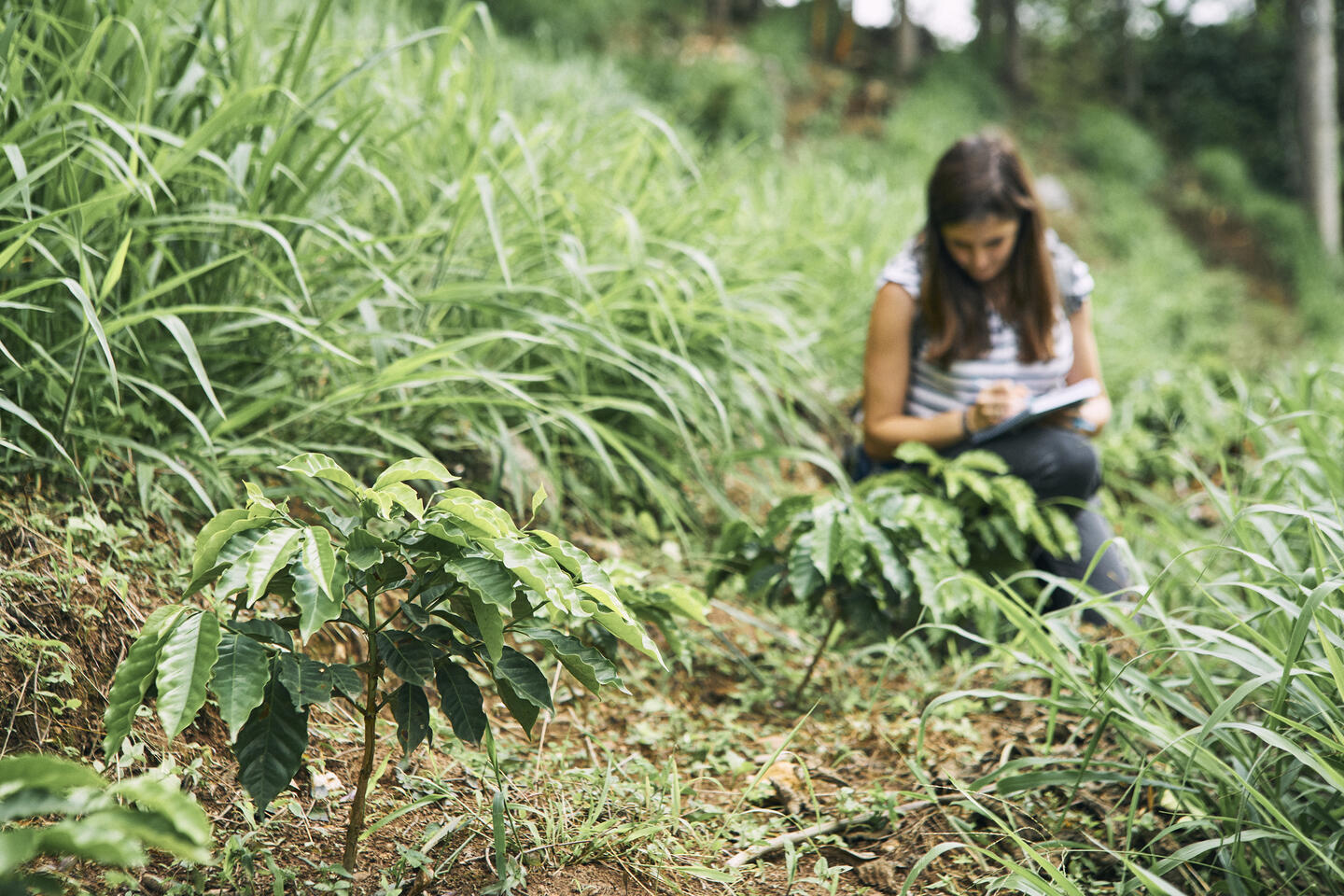
ITC and partners help the coffee sector prepare for new EU sustainability rules
European Commission has adopted a proposal for a Directive on corporate sustainability that will hold companies accountable for conducting sustainability due diligence in their supply chains. Businesses will have to establish systems to identify, prevent and mitigate environmental and social risks. This due diligence covers a company’s own operations, as well as its sourcing model.
Voluntary sustainability guidelines can help address socio-environmental concerns. But in 2022, only 16% of companies worldwide said they would consider acting to address human rights and environmental concerns in their supply chain. Since the proposal for Corporate Sustainability Due Diligence (CS3D) was published in February 2022, attention has turned to how value chain actors and stakeholders will operationalize its requirements.
Building on the notion that a ‘smart mix’ of mandatory and voluntary implementation measures is needed, the proposed Directive makes provision for ‘accompanying measures’ to be developed so companies and their value chain partners can fulfill their new obligations.
ITC underscores the importance of accompanying measures
The proposed EU CS3D directive makes provision for ‘accompanying measures’ to be developed so companies and their value chain partners can fulfill their new obligations. The ITC Alliances for Action sustainable agribusiness initiative is helping shape implementation mechanisms to guide suppliers and producers in developing countries through this change.
The initiative has been working closely with the European Commission’s Directorate-General for International Partnerships and other important partners on actionable measures to implement mandatory human rights and environmental due diligence sustainably for all. The initiative works with a blueprint for accompanying measures targeting small enterprises in producer countries and pilot implementation projects.
Partnerships are key to inclusive implementation
ITC supports Value Chain Due Diligence pilots for cocoa in Ghana, coffee in Ethiopia and Uganda, and textiles in Eswatini. These pilots work through collaborative efforts with
- The European Commission, Directorate-General International Partnerships
- The Organisation of African, Caribbean and Pacific States (OACPS)
- The International Coffee Organization (ICO)
- The Ministry of Foreign Affairs of the Netherlands
- CLAC, which leads and finances additional pilots in coffee in Honduras and Brazil, and for cocoa in Dominican Republic and Peru
- Policymakers and value chain operators
This complements and is under the umbrella of ITC's existing formal partnerships with the Fair-Trade Network organizations Fair Trade International, Max Havelaar Switzerland, Fairtrade Advocacy and Fair Trade Africa.
Source: ITC, Alliances for Action (2023)
Coffee entrepreneurship in the South Pacific
When countries in the South Pacific, and particularly the small island nation of Vanuatu, gained independence, it was not without repercussions. Very few agricultural cooperatives survived. The key focus since has primarily been aimed towards smallholder farming development and direct private sector engagement.
A positive example of this collaborative style is Tanna Coffee Development Company. Over the past two decades, it has helped 1,000 smallholder farmers become self-employed entrepreneurs. Through its Coffee Development Programme, the company provides coffee growers with skills, training, materials and equipment so they can maximize the value of their produce and processing.
Diversity in action
The focus in recent years has been to help growers diversify crops to boost food security and to improve on-farm biodiversity and climate resilience. Coffee plants are intercropped with fruit trees, vegetables, kava (use to make a traditional drink of the Pacific) and sandalwood.
The entire coffee-growing sector in Vanuatu, from the tree to the cup, operates in an ethical, sustainable and synergistic fashion. This approach is, according to Tanna Coffee, ‘beyond fair trade’ and provides better livelihoods, higher living standards, gender equality and education to the farmers, their families and communities.
Beyond the production of quality coffee and the empowerment of smallholder farmers, Tanna Coffee seeks to create naturally diversified organic and self-sustainable lifestyles that deliver positive and inclusive growth, along with the essential socioeconomic benefits of development that accompany it, says company founder Terry Adlington.
Source: Karen Mapusua, Director, Land Resources Division, The Pacific Community
Helping women in the Jamaican coffee industry reach higher ground
Jamaican Women in Coffee (JAWiC) seeks to empower female coffee growers in the Caribbean nation despite the challenges posed by the COVID-19 pandemic and the inequities facing black people and women.
Supported by the International Women in Coffee Alliance and the Coffee Quality Institute, JAWiC embraces a broad vision of sustainability. This partnership coalesced around the notion of enabling self-sustaining community leadership and knowledge infrastructure through an adaptable evaluation and implementation framework.
Higher Ground is a multi-year project that uses the Coffee Quality Institute’s design framework to empower women coffee producers in Jamaica through education and leadership development, with the aim of creating a self-sustaining and thriving coffee community. While the project specifically targets women, this framework concept can be transferred and applied to any coffee growing community. It requires collaboration among local entities and private–public funding partners.
The lay of the land
The first step was to evaluate the needs of and challenges facing the community and its goals. Baseline field interviews and survey data helped identify the barriers and shape the framework for sustainable and equitable change.
The survey found that women lack support in education and training, leadership development, infrastructure, finance and market connections. Although coffee is the largest foreign exchange earner, representing 83% of traditional agricultural exports, only 27% of registered coffee farmers are women and of these, just 57% own their land.
In addition, female coffee growers are an ageing group (with the average age being 52). Half of those surveyed indicated they did not want their children to work in coffee due to declining incomes. While 82% identified coffee as their main income source, 94% of these said the income was insufficient to meet the needs of their family. Interestingly, 69% said they had not received any training in farming – 48% learned by trial and error.
These facts are alarming as productivity and prices fall and as other concerns such as climate change and disease continue to stress this industry and make life difficult for these women.
Learning the ropes
With this information, the project identified education and market access gaps as significant barriers to progress. Higher Ground produced a tiered approach using the Coffee Quality Institute’s good practices learning and leadership empowerment alongside traditional certification of Q Grader and Q Processing professionals.
Ultimately, the project works to strengthen the common coffee language of Jamaican women coffee growers. This helps them improve the quality of their coffee, while developing internal leadership capacity and expertise to elevate their product to a level that will appeal to the international coffee market. Parallel to education and leadership development, the targeted women are receiving market-based training and infrastructure is being developed.
Training is taking place online due to the COVID-19 pandemic. In-person training will resume as soon as conditions allow.
One trainee said the training was important because it taught new techniques such as fermentation and honey processing. After learning that processing affects the taste of coffee, another trainee said small farmers needed access to processing information.
Between sharing good practices and training trainers, JAWiC will help build a strong foundation for a healthy, thriving and sustainable coffee industry. When women succeed in business, communities benefit.
Source: Tina Yerkes, Chief Executive Officer, Coffee Quality Institute.
Continue reading
Submit a question or resource to the Coffee Guide Network
Do you know of a tool or resource we have not covered in this toolkit? Do you have a question that is not covered in this toolkit? Submit your question or resource to the Coffee Guide Network. We will consider this for our research and information sharing agenda!




